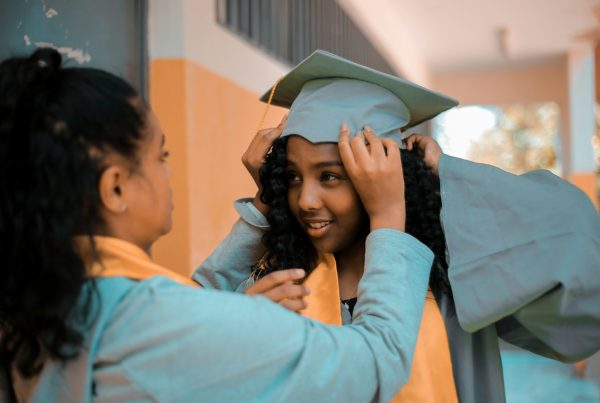The goal of enrolling in college is to complete a degree. Yet for decades, some students have been less likely to enroll in college than their peers, and also less likely to complete their degrees when they do enroll. What might cause these discrepancies?
Let’s look at two things about underserved students: who they are and the types of support that can help them make the most of college.
Who They Are
In the United States, students who are considered underserved most commonly include students from low-income backgrounds, students who are the first in their families to attend college, and/or students who identify as Black/African American or Latinx. For the last several decades, students in each of these groups enrolled and persisted at lower rates than their peers, demonstrating that their experiences related to college differ from their higher-income, legacy, and traditionally-majority peers.
Notably, the term underserved hints at progress in higher education. Until recently, the more common terminology for students in the groups noted above was historically underrepresented. This terminology was sufficient in that it helped colleges and universities take the first step in identifying and improving support for students in these groups, and it continues to be accurate at many institutions. Yet it was improved upon with the term underserved, which positions students within a shared responsibility for their success, alongside the institutions where they enroll and the wider systems that inform college access. Whereas historically underrepresented did not attempt to address why such misalignment in representation existed on college campuses (and has continued for so many decades), underserved suggests action: provide support.
Thus, although low-income, first-generation, and/or Black/African American or Latinx students are indeed historically underrepresented in the hallowed halls of colleges and universities, it is fitting to think of them as students who can indeed be supported by their institutions toward their academic goals.
Support to Look For
The best campus support for underserved students aligns with their specific goals in college and will involve a variety of pathways for success. While there are institutional, state, and federal programs at many institutions that provide both academic and transition support, there are also a number of additional programs that any student can engage with in order to make the most of their particular college experience. A couple of the most common to look for include:
- Academic advising—Often especially helpful to first- and second-year students as they acclimate to their majors and plan to engage in the full range of academic opportunities available to them
- Peer mentorship—Can be a feature of orientation or first-year programs that prompt an initial relational connection to the institution and also provide an experienced perspective
- First-year seminar—Required at many colleges, this seminar supports students in adjusting to campus life at the institution and frequently involves elements of inquiry and personal reflection
These programs, and more, are offered to all students, but they sometimes include elements specific to underserved students. For example, some institutions may train academic advisors to support first-generation students specifically by asking a broader range of questions to ensure students are learning to navigate the new landscape of the institution. Another example could be a peer mentor within a summer transition program for underserved students who support early adjustment to campus and time for social connections before classes begin. Engaging in programs and relationships like these on campus, especially in the first year, can lead to deeper connections and firmer footing when it comes to the myriad moments that comprise a meaningful and successful college experience.
FGN-3051716PR-Y0823W









